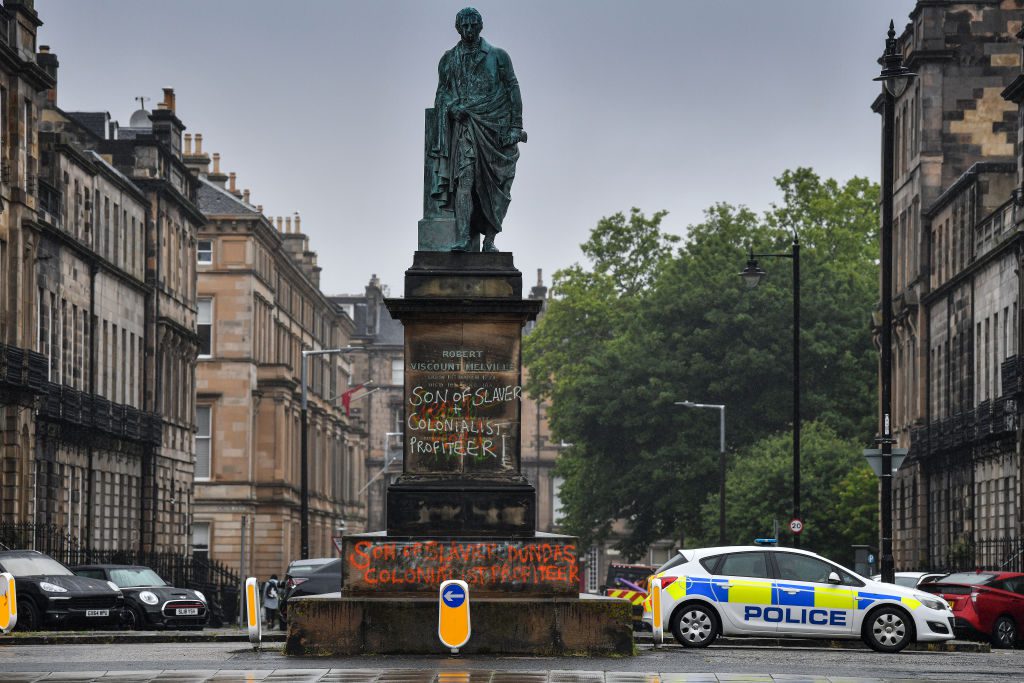- Saturday, April 27, 2024
Edinburgh council has initiated an investigation into the matter

By: Pramod Thomas
A controversial plaque linking an 18th-century Scottish politician to slavery has mysteriously vanished, the Telegraph reported.
The plaque, situated at the base of the Henry Dundas statue in Edinburgh, was removed on Monday (18) night, further fueling the ongoing dispute.
Historians accused the plaque of inaccurately attributing the enslavement of over 500,000 Africans to Dundas. They have taken issue with the plaque’s wording, asserting that it distorts historical facts.
The plaque was initially erected following the defacement of the statue, known as the Melville Monument, by Black Lives Matter activists in 2020, due to Dundas’s connections to the slave trade.
Edinburgh council, however, has stated that it did not authorise the plaque’s removal and has initiated an investigation into the matter.
“As caretakers of the statue, any alterations to the monument would require the council’s consent, which was not sought or granted in this instance,” Cammy Day, the leader of Edinburgh council, is reported to have said.
The contentious plaque asserts that while in government during the 1790s, Dundas played a pivotal role in postponing the abolition of the Atlantic slave trade until 1807.
It further dedicates the plaque ‘to the memory of the more than half a million Africans whose enslavement was a consequence of Dundas’s actions’.
Angela McCarthy, a prominent historian, has criticised the text as ‘patently absurd, erroneous, and poor history’ and has called on the council to remove it, emphasising their ‘moral duty’.
The campaign to remove the plaque has garnered support from Sir Tom Devine, widely regarded as Scotland’s leading historian. Nevertheless, the council remains steadfast, contending that the wording is “factually accurate.”
Dundas’s supporters argue that his support for a delay in abolition was based on practical considerations, as a ban would not have garnered sufficient support at the time. They maintain that attributing the continuation of the slave trade or the enslavement of over 500,000 individuals solely to Dundas is highly misleading.
Dundas, as a lawyer, also represented Joseph Knight, a former slave, in a case that effectively abolished slavery in Scotland. Notably, this fact is omitted from the plaque.
Last year, campaigners secured planning permission to remove the sign, but the council asserted that this was granted on a technicality, as the applicants did not own the statue, rendering it ineffective.
The council has stated that, at this stage, it has opted not to involve the police in the disappearance of the plaque.
![]()